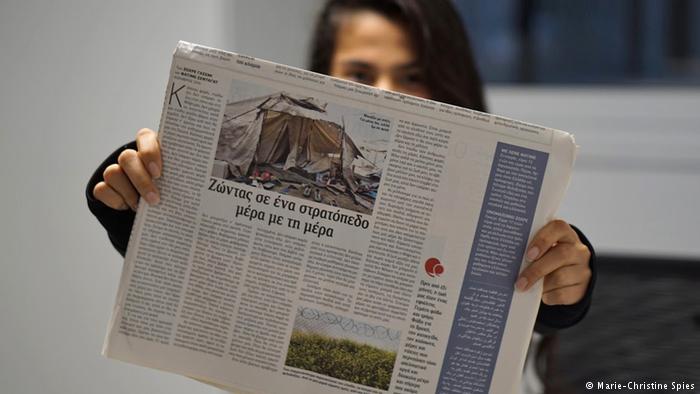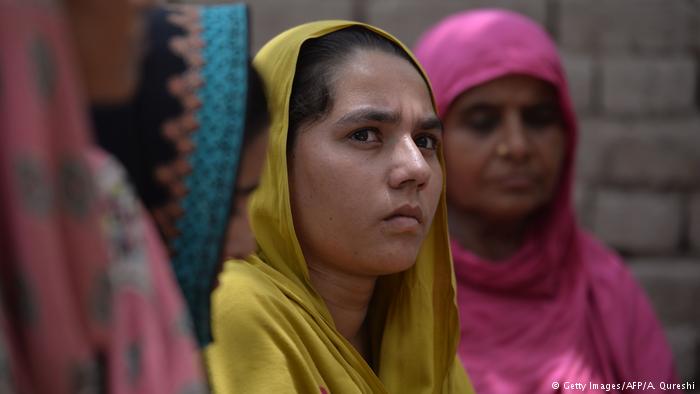Women suffered most when disaster occurs
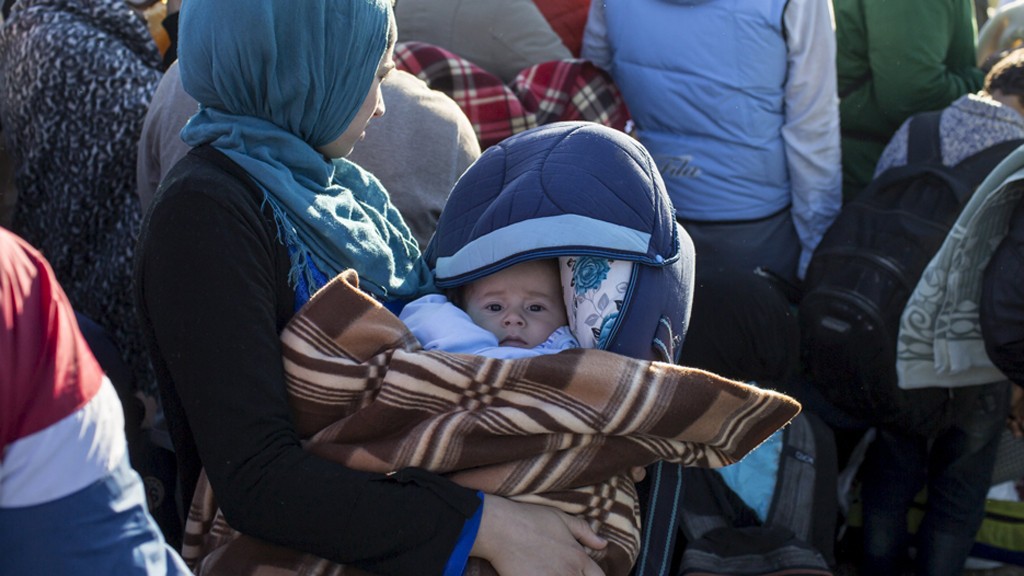
A refugee woman carries a child in a makeshift camp at a collection point in the village of Roszke, Hungary, September 7, 2015. @ Reuters/Marko Djurica
Social, economic and political changes affect women enormously. But a disaster is the worst of all.
Patriarchal social structures are prevalent all around the globe. These setups make women more vulnerable to disasters. As women do not have enough access to the public life in such setups, they do not have enough education and information to manage themselves in public spheres. When a disaster occurs, women are suddenly exposed to public attention, where they feel uncomfortable and survival becomes a challenge for them.
Almost ten years ago in October 2005 an earthquake of magnitude 7.6 on the Richter scale hit the northern areas of Pakistan. It also brought a massive destruction for Azad Kashmir and its adjacent regions. Muzaffarabad was the worst hit district. Almost 70% of the total casualties were reported in this district.
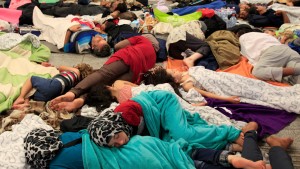
Refugees sleep near the Keleti railway station in Budapest, Hungary, September 3, 2015. @ Reuters/Bernadett Szabo
It was a heart-rending disaster. Almost 87 thousand people died, 75 thousand were injured and around three million were displaced. Many women and children lost their husbands and fathers or protectors in the disaster.
In this hour of need many governmental and non-governmental organizations stepped forward to help the victims.
But let me show you the darker side of the picture. In this situation of misery, human traffickers became active. Many young girls and women were abducted. And another psychological trial began for these women.
As women in these regions were living in a strictly patriarchal social setup they did not have enough information about how to protect themselves and support their children.
Some NGOs sponsored girls and boys to continue their education in bigger cities, as in the earthquake affected areas, there were no school and college buildings left anymore. And the only way to continue the education was to move to the other cities which had not been affected by the disaster. So these girls and boys were brought to the bigger cities. Where they got admissions in the schools and colleges and their accommodation was arranged in the private hostels in the vicinity. Men and boys could settle down and began living better lives. But unfortunately, girls and women still had to suffer.
This time they were raped by the hostel owners and managers. These innocent girls did not even know how to protest against the violence. NGO representatives used to come to meet these girls every week, but these meetings were also attended by these hostel owners and managers who used to rape these girls. These NGOs were focusing more on the paper work rather than actually helping the victims.
These girls were so scared that they could not even imagine a way to speak up against their rapists. So after years and years of the earthquake, women’s and girl’s exploitation were being exercised and there was no one to stand up for these innocent girls.
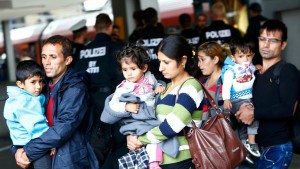
Refugees make their way after arriving by train at the main railway station in Munich, Germany September 7, 2015. @ Reuters/Michaela Rehle
As a woman, I am extremely anxious when I see women facing another disaster. There are thousands of families migrating to European countries for a safer place to live in. The developments shown on media are very heart-rending. Everyone felt disturbed and burst to tears on seeing a toddler’s dead body on a sea shore.
These moments are unforgettable. Humanity was suffering.
Big thanks to the European countries who have decided to accept and help the immigrants. I really hope that the immigrants can get settled soon. International human rights organizations should step forward to help them. And all this support should not be limited to the paper work only.
International women’s welfare organizations also should play their part to protect the effected women, as the chances of women’s exploitation are high during such happenings.
I hope that especially the immigrant women and girls do not have to suffer anymore, as the earthquake victims suffered, even long after the disaster occured.
Author: Roheena Sajid
Editor: Marjory Linardy
WTO RECOMMENDS
Nepali Women – Caught in a Terrible Vortex
Dhankumari, 57, lost her belongings and livestock in the killer earthquake that shattered her home on April 25. After the next tremor on May 12, she is even more worried. She is only one of many. Thousands of women and children are affected by Nepal’s devastating earthquake and do not know how to continue with their lives. Relief workers warn of the threat posed to these women by sex traffickers. (From May 29, 2015)
Braving the deluge in Kashmir
A month after flood waters battered the northern state of Jammu and Kashmir, the magnitude of the tragedy is slowly unfolding. Bigger worries of death and disease still haunt the area in the aftermath of the worst crisis to have hit the region in the last six decades. Murali Krishnan visited the inundated areas in India-administered Kashmir and brought back some pictures and stories of brave women. (From October 8, 2014)
No one will rise from the ashes
The fire disaster at two factories in Pakistan ruined the lives of several women, their husbands and children. Blogger M. Salman ruminates on the consequences and why 9/11 suddenly gains a new meaning. (From September 14, 2012)





